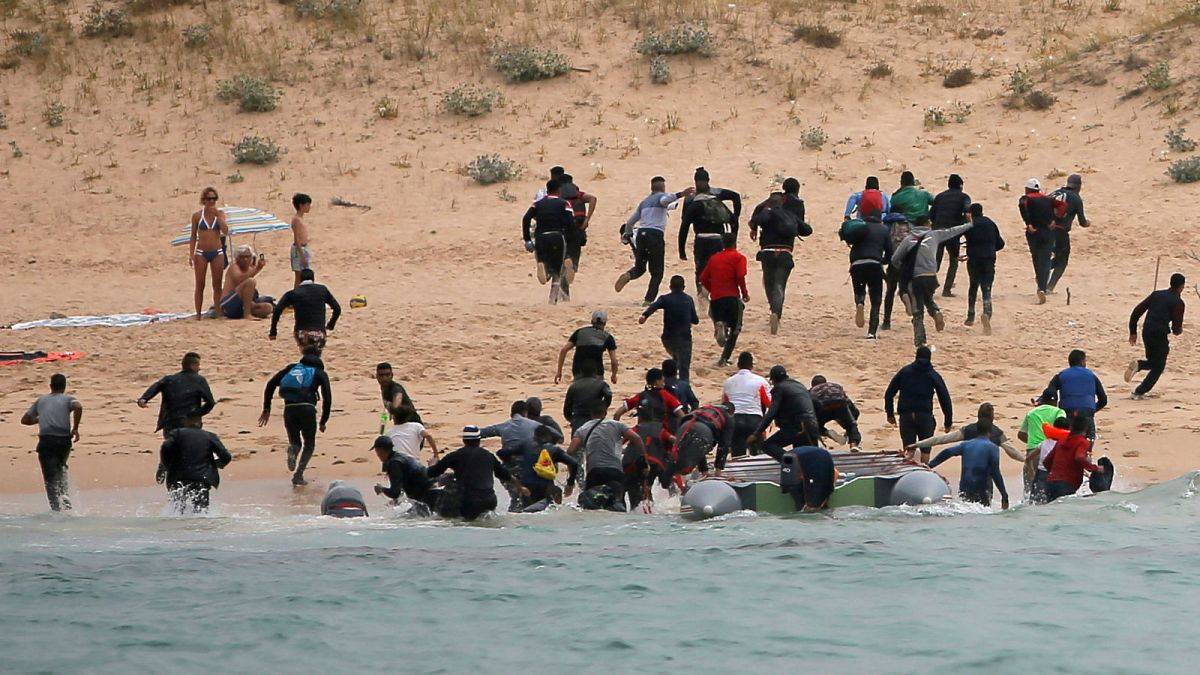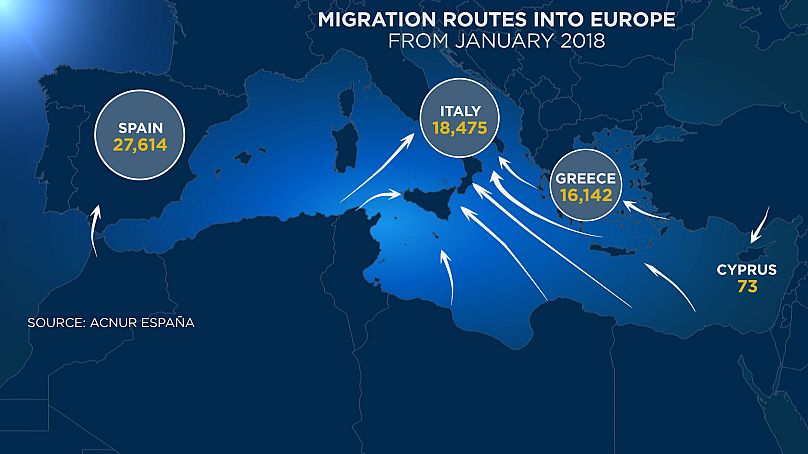Morocco may have relaxed migration controls into Europe as leverage in key negotiations with Brussels, it’s been claimed.
Morocco may have relaxed migration controls into Europe as leverage in key negotiations with Brussels, it’s been claimed.
The country, 14 kilometres from Andalucía, is in fresh focus after its northern neighbour Spain emerged as the busiest route into the EU for migrants.
Experts say while they cannot be certain, there are suspicions border checks were eased ahead of negotiations on a fisheries agreement and how much Brussels should give Rabat for helping protect the EU’s external border.
It’s controversial because the sea crossing to Spain can be deadly — 293 migrants are feared to have perished in the first six months of this year alone.
“It is more difficult to say with absolute certainty, but several observers I trust suggest that Morocco, as it has done in the past, is using as part of the negotiation on very sensitive issues such as the fisheries agreement, or in the negotiation of the aid that the EU will give the country to manage these [migration] flows,” said Gonzalo Fanjul, an investigator at porCausa, a foundation that probes migration matters.
“Traditionally, the Moroccan state security forces squeeze or raise their hands depending on the circumstances. One of the elements that makes us think that this is a factor is that among the flows that are coming there are many Moroccans, and these immigrants are not displaced from Libya.”
Brussels announced last month it was giving Morocco and Tunisia €55 million to “improve maritime border management, save lives at sea and fight against smugglers operating in the region”.
A spokeswoman for the European Commission said there was no evidence to support claims Morocco had eased border controls. Morocco’s Ministry of Foreign Affairs did not respond to Euronews' requests for comment.
It comes after figures revealed there were more migrant arrivals into Spain from North Africa in June and July this year than the whole of 2016.
There was also a sharp hike in the number of Moroccans making the trip, up from 963 in 2016 to 5,500 last year.
“The flow that has been directed toward Libya for the past few years and which has declined hugely since July last year could still easily divert and have an impact in Morocco,” said Frank McNamara, policy analyst at the European Policy Centre (EPC).
“However it seems that the increase [of migrants into Spain] may indeed simply be down to an increase in numbers in Morocco and some ‘politicking’ by the Moroccans.
“They obviously know there are deals to be made with the EU at the moment as does the rest of Africa.
“What we do know is that more people are getting through and that Morocco, alongside the Spanish, had been successful in frustrating the flow in the past.
“Migrants have long been used as leverage in negotiations between some African states and their European counterparts. It wouldn't surprise me if a state eases up on border control, which can then result in drownings.”
Mohamed Daadaoui, professor of political science at Oklahoma City University, told Euronews while there had been accusations of Moroccan blackmail there was more to the story than this.
He said the rise in migrants could be a reaction to a European Court of Justice ruling in December 2016 that said any trade deals with the EU should not apply to Western Sahara — a disputed territory — because it cannot be considered part of Morocco.
“However, I also think that Moroccan youth are all too eager to take the risk of crossing given the dire socio-economic situation in Morocco.
“Their prospects for jobs and economic empowerment have not improved, especially in the northern parts of the country.”
Professor Daadaoui added the protest movement in the predominantly Berber region of Rif in late 2016 had “exacerbated the view of the state’s inability to cope with the sheer range of socio-economic needs of the Moroccan youth”.
Others, however, believe the increase in migrants coming into Spain from Morocco and Tunisia is down to the routes via Libya and Greece being restricted.
“Morocco has relaxed border controls for political leverage in the past, but it doesn't seem the case to me at the moment as the country is in a process of improving its relations with Europe and the other African countries,” said Francesca Fabbri, an expert on Morocco from EPC.
“It can’t be excluded that at times Moroccan guards may have crossed their arms to give a fright to Europe although difficult to demonstrate, but not systematically.
“Cooperation between authorities on Moroccan and Spanish side has been reportedly good.
“It is also against Moroccan interest to have the message spread that it is easy to pass from there to Europe.”

